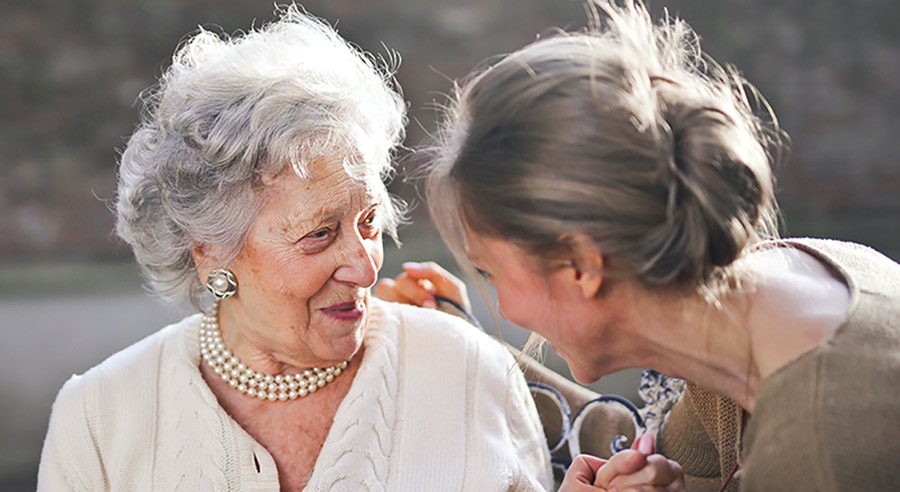Selecting the Right Home Care Providers: NDIS Plan Manager Insights and In Home Caregivers
Selecting the Right Home Care Providers: NDIS Plan Manager Insights and In Home Caregivers
Blog Article
The Expanding Need for In Home Care Givers: Reasons Family Members Pick Expert Care Over Traditional Facilities
The raising preference for at home caregivers over conventional facilities is a substantial pattern improving the landscape of elder treatment. Households are drawn to the benefits of individualized care that aligns with specific requirements and choices, permitting senior citizens to maintain a sense of autonomy in an acquainted atmosphere. This shift also highlights the monetary and emotional factors to consider that influence decision-making. As we explore the myriad variables adding to this growing need, the implications for both caretakers and households become significantly obvious. What does this mean for the future of caregiving?
Customization of Care
Personalization of care in home caregiving is essential for satisfying the unique needs of each individual (in home caregivers). This approach makes sure that care strategies are tailored to the certain demands of the person, considering their case history, individual preferences, and lifestyle. By focusing on the person's unique scenarios, caregivers can foster a feeling of self-respect and freedom, which is frequently doing not have in even more institutionalized setups

Home caregiving permits for constant observation and adjustment of treatment strategies, making sure that changes in health status or individual choices are without delay resolved. Inevitably, customized care in home settings significantly adds to the total health of customers, making it a crucial element of modern caregiving practices.
Comfort of Home Atmosphere
The comfort of a home setting plays an important function in the effectiveness of home caregiving. Numerous individuals, specifically senior citizens, experience enhanced anxiety and anxiety when put in strange settings such as typical care centers.
Moreover, the home setting permits for a customized method to caregiving, accommodating specific choices and routines. Family members can create an ambience that reflects their liked one's way of living, guaranteeing that treatment is supplied in such a way that really feels natural and comfy. This tailored setting motivates far better interaction and interaction between clients and caregivers, promoting trust fund and rapport vital for reliable treatment.
Additionally, the comfort of home can assist in social links, as household members and pals can check out extra easily, offering important psychological assistance. ndis plan manager. On the whole, the home setting not just aids to maintain dignity and freedom but also adds to a better of treatment, making it a favored selection for family members looking for professional caregiving services

Boosted Independence for Senior Citizens
Home caregiving not just gives comfort yet additionally advertises boosted independence for senior citizens. Unlike standard centers, at home care allows senior citizens to preserve their everyday regimens and involve in acquainted tasks within their very own environment. This autonomy is essential for their psychological health and general top quality of life.

In addition, at home caretakers can adjust their solutions to provide especially to the unique needs of each senior, promoting a higher sense of control. This flexibility makes sure that elders can appreciate their leisure activities, fraternize friends and family, and continue to be energetic in their areas, additionally boosting their feeling of freedom.
Ultimately, in-home caregiving not only resolves the physical demands pop over to these guys of seniors but also encourages them to lead meeting lives, making it a significantly preferred selection for family members looking for the finest treatment options for their liked ones.
Cost-Effectiveness of In-Home Care
In-home treatment uses an economical option to conventional nursing facilities, permitting family members to give high quality assistance for their liked ones without incurring expensive expenses. The expenditures linked with retirement home can be overwhelming, often going beyond $100,000 every year, which can drain financial sources quickly. In comparison, in-home treatment services typically bill on a hourly or per-visit basis, allowing families to customize care strategies according to their budget and certain needs.
Moreover, at home treatment gets rid of added prices associated with center living, such as transportation, bed and board, and different administrative costs. Households can select to involve caregivers just when needed, possibly reducing total expenditures. A considerable advantage of in-home treatment is the ability to keep individual regimens, which can contribute to much better psychological health and lower the demand for pricey medical treatments arising from sudden way of living changes.
Insurance coverage, consisting of long-lasting treatment insurance policy, frequently encompasses in-home care solutions, further boosting financial ease of access (in home caregivers). On the whole, the cost-effectiveness of at home treatment not just reduces the financial problem on families however additionally advertises a much more personalized method to care that aligns with specific choices and requirements
Structure Stronger Family Links
Supplying care in an acquainted environment fosters much deeper family members links, allowing liked ones to actively take part in the caregiving process. At home treatment produces possibilities for families to engage meaningfully with their impaired or elderly family members, promoting psychological bonds that can be difficult to accomplish in institutional setups. The presence of professional caretakers makes it possible for member of the family to concentrate on their relational functions instead of being strained by the physical demands of treatment.
Additionally, in-home treatment permits households to keep their valued regimens, which can diminish sensations of anxiety and disorientation commonly connected with relocation to care facilities. Shared meals, familiar surroundings, and the comfort of home give a feeling of view it now stability that boosts well-being and promotes open interaction.
Households can collaborate with caregivers to develop personalized treatment plans that reflect the specific choices and requirements of their liked ones. This collaborative strategy not just encourages the senior however also reinforces the family, as members share duties and sustain one another through tough times. Eventually, at home care grows a nurturing environment where partnerships can prosper, enhancing the top quality of life for both caregivers and recipients.
Verdict
The boosting preference for at home caretakers highlights a considerable change in how family members approach elderly care. Discover More Here Individualized care strategies, the comfort of acquainted surroundings, boosted independence for seniors, and cost-effectiveness collectively add to this trend. Furthermore, the participation of member of the family in the caregiving process cultivates stronger connections and assistance networks. As these factors straighten, at home treatment becomes an engaging alternative to traditional centers, ultimately promoting the health and quality of life for senior citizens.
Families are attracted to the benefits of personalized care that lines up with specific demands and choices, enabling elders to maintain a sense of autonomy in an acquainted environment.In-home care provides an economical choice to traditional nursing facilities, allowing households to offer high quality support for their liked ones without sustaining exorbitant expenses. In contrast, in-home treatment services generally charge on a per-visit or per hour basis, making it possible for families to customize care plans according to their budget and particular needs.
In-home treatment produces possibilities for family members to engage meaningfully with their disabled or elderly loved ones, advertising psychological bonds that can be hard to attain in institutional setups.The enhancing preference for in-home caretakers highlights a significant change in how households approach elderly care.
Report this page